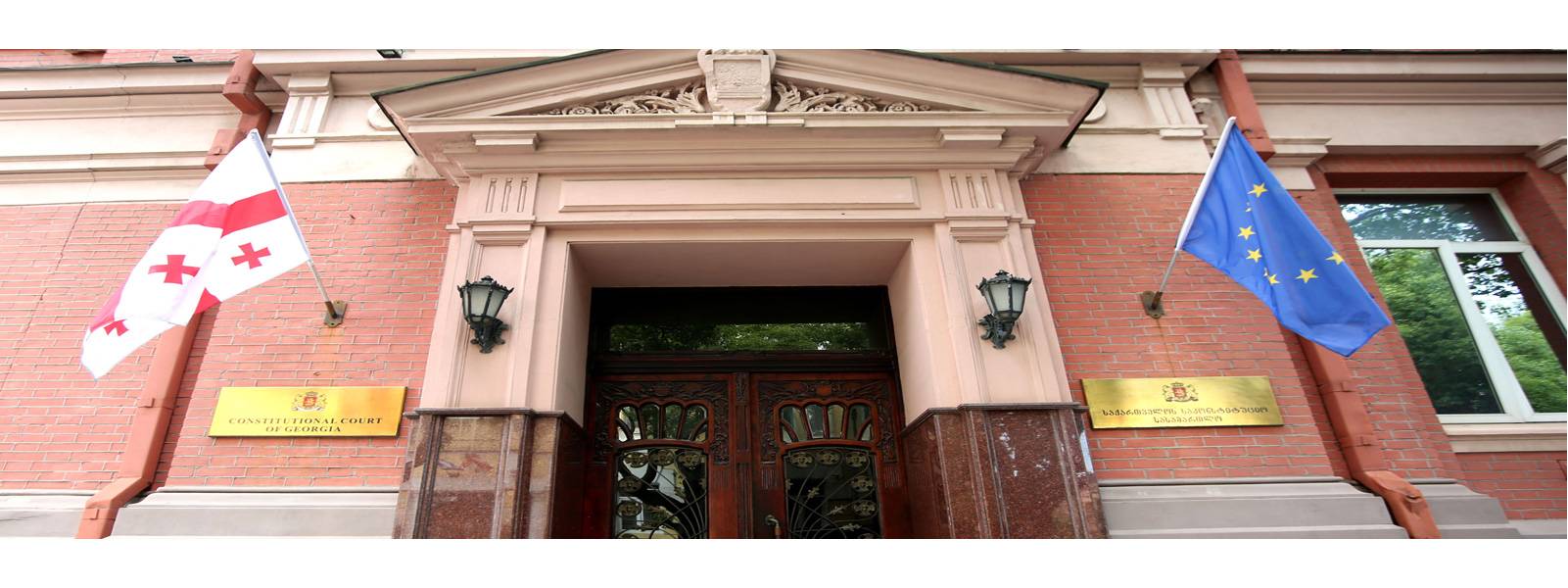Journal of Constitutional Law - Vol.1, 2018
Special Edition
Issue date: 2018
Author: Constitutional Court of Georgia
Abstract
The Organic Law of Georgia “On the Constitutional Court of Georgia” article 12, paragraph 2 prescribes the duty of the President of the Constitutional Court of Georgia to annually present information to the President of Georgia, Parliament of Georgia and the Supreme Court of Georgia regarding the state of constitutional justice in Georgia. The President of the Court has fulfilled this duty for the first time in the past several years in 2018 and delivered the document to the relevant institutions and also published it on the webpage, assessing the state of constitutional justice in Georgia during 2017. The present document is based on this very extensive report and shortly provides the information submitted by the Court.
The Constitutional Court is the guarantor of the supremacy of the Constitution and protection of constitutional rights and freedoms of individual. For assessing the condition of constitutional justice in the country the discussion and analysis over the case-law of the Constitutional Court is significant. The present document aims at summarising the landmark acts adopted by the Court during 2017 and assess their relevance for the development of the constitutional justice. The article focuses on several relevant judgments adopted in 2017 having major impact on legal development in Georgia and which are important to be a subject of wider discussions. At the same time, the Court has adopted several rulings during 2017 for invalidating the provisions overruling its judgments, which stresses the necessity of reflecting Court practice into the law. This article pays particular attention to these rulings, in order to inform interested audience and relevant state institutions of the problems and challenges in implementing the standards established by the Constitutional Court of Georgia.
Pages: 7-25
Author: John Khetsuriani
Abstract
Constitutional reform undertaken in 2017, which ended the transformation of the country into the parliamentary republic, also affected the Constitutional Court. The norms providing the constitutional basis for the Court were amended. The article discusses the content of amendments, their appropriateness and relevance; it demonstrates the experience of relevant regulations from other countries. The constitutional amendments regarding the formation of the Constitutional Court and appointment of judges, as well as specifying the scope of authorities the Court holds are assessed positively in this paper. However, considering the substantial reduction of competences of the Court, specifically, removal of four competences altogether, including the formal control of the provisions, further limitation of the competence of overseeing the constitutionality of elections, etc., the constitutional reform in these regards cannot be declared as a step forward.
Paper: Constitutional Reform in Georgia (2017) and the Constitutional Court
Pages: 27-41
Author: Anna Phirtskhalashvili
Abstract
The development of the states in the modern world happens in steps with the global processes and taking the national identity into consideration. Often times, it is difficult for the states to follow this process of development maintaining the balance. The law should be the tool ensuring the optimal correlation of both– international and national – values. The observation on the cold war, its following period and the ongoing processes demonstrates that the states within the current globalisation cannot develop independently from other states and peoples. The problems facing the world, such as, for instance, environmental protection, the fight against terrorism and other threats can only be defeated with unity. The supranational union of states serves primarily the goal of resolving these global problems. The states unite in such international communities through giving up portion of their sovereignty. Giving up this “portion” of sovereignty sometimes means limiting constitutional, national identity. The control of national identity is the barrier between the national and international. Nowadays the main challenge of the modern state is to be a dignified member of the international community and maintain national identity of its constitution.
Paper: Internationalisation of the National Law to the Constitutionalisation of the International Law
Pages: 43-53
Author: Constitutional Court of Georgia
Paper: Annex - Statistical Overview of the Court’s Activities
Pages: 55-60


